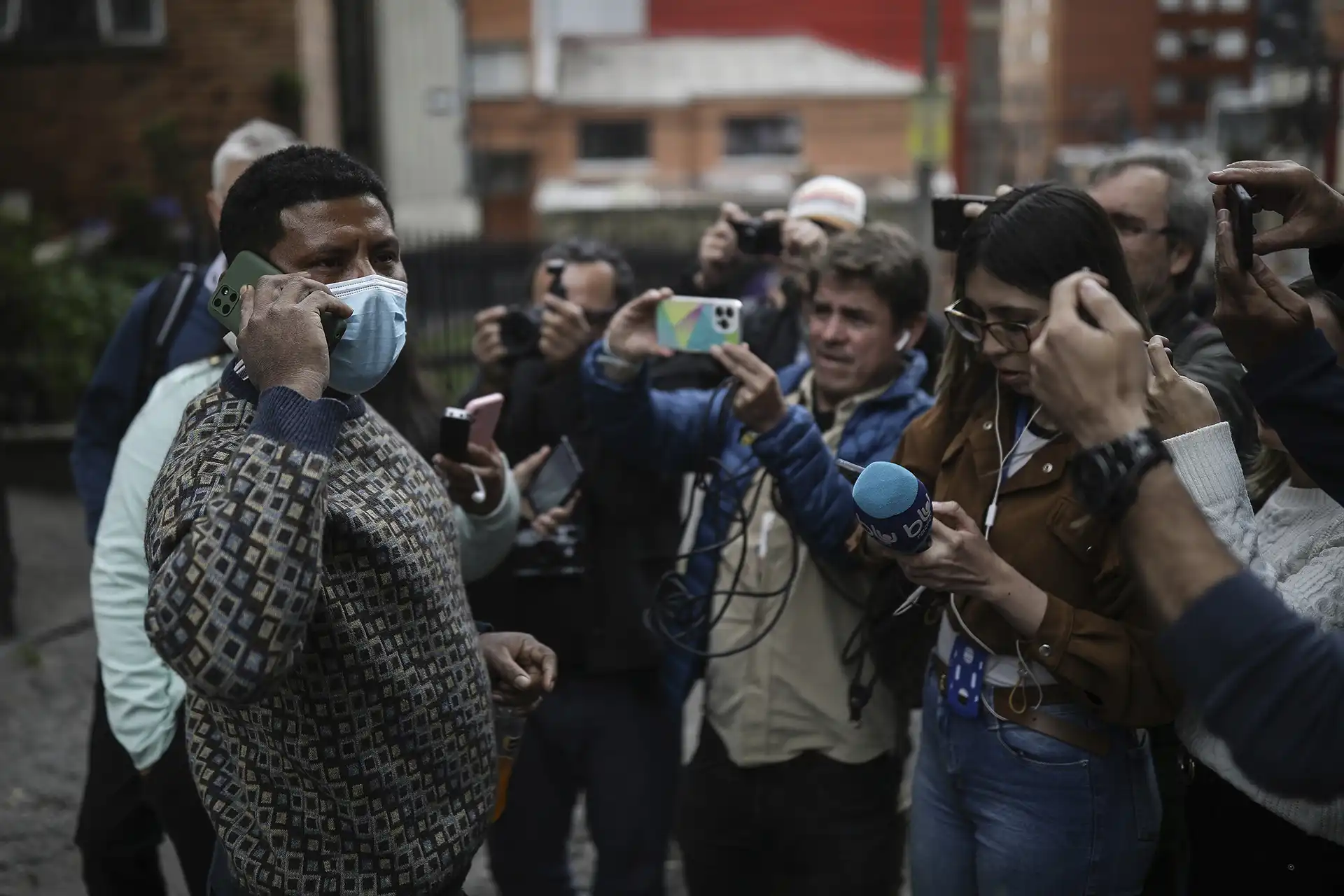BOGOTA, Colombia (AP) — A custody battle has broken out among relatives of four Indigenous children who survived a plane crash and 40 harrowing days alone in the Amazon rainforest in an extraordinary showing of youthful resilience that captivated people around the world.

The siblings, ranging in age from one to 13, remained hospitalised on Monday and were expected to stay there for several more days, a period that Colombia’s child protection agency is using to interview family members to determine who should care for them after their mother died in the May 1 crash.
Astrid Cáceres, head of the Colombian Institute of Family Welfare, said in an interview with BLU radio that a caseworker was assigned to the children at the request of their maternal grandparents, who are vying for custody with the father of the two youngest.
“We are going to talk, investigate, learn a little about the situation,” Cáceres said, adding that the agency has not ruled out that they and their mother may have experienced domestic abuse.
“The most important thing at this moment is the children’s health, which is not only physical but also emotional, the way we accompany them emotionally,” she said.
On Sunday, grandfather Narciso Mucutuy accused Manuel Ranoque of beating his daughter, Magdalena Mucuty, telling reporters the children would hide in the forest when fighting broke out.
Ranoque acknowledged to reporters that there had been trouble at home, but he characterised it as a private family matter and not “gossip for the world.”
Asked whether he had attacked his wife, Ranoque said: “Verbally, sometimes, yes. Physically, very little. We had more verbal fights.”
Ranoque said he has not been allowed to see the two oldest children at the hospital. Cáceres declined to comment on why that was the case.
The children were traveling with their mother from the Amazonian village of Araracuara to the town of San Jose del Guaviare on May 1 when the pilot of the Cessna single-engine propeller plane declared an emergency due to engine failure. The aircraft fell off the radar a short time later, and a search began for the three adults and four children who were on board.
For more than a month, the children survived by eating cassava flour and seeds as well as some fruits they found in the rainforest, which they were familiar with as members of the Huitoto Indigenous group.
They were finally found Friday and helicoptered to the capital, Bogota, and then to a military hospital where they have been given psychological services and other support. Officials have sought to do so in a culturally sensitive way, arranging for spiritual ceremonies and food the children are accustomed to.
As they convalesce, the children have told relatives harrowing details of their time in the jungle. The oldest, Lesly Jacobombaire Mucutuy, said their mother was alive for about four days after the crash before dying, Ranoque said Sunday.
Having a safe environment to talk openly about their experience and whatever emotions they may be feeling, be it grief or pride over having survived, will be key to recovery, said Dr Robert Sege, a pediatrician and director of the Center for Community-Engaged Medicine at Tufts Medical Centre in Boston.
How children process trauma can vary by age, he added.
“Our brains are always trying to make sense out of things,” Sege said. “And if we’re at different developmental stages, the way we make sense is going to be different.”
The plane was found two weeks after the crash in a thick patch of rainforest. The bodies of the three adults were recovered, but there was no sign of the children, prompting hopes that they could be alive.
Soldiers in helicopters dropped boxes of food into the jungle, and planes fired off flares at night to illuminate the ground for crews searching around the clock. Rescuers also used speakers to blast a message recorded by the children’s grandmother telling them to stay in one place.
The children were ultimately found last Friday about five kilometres (three miles) from the crash in a small clearing. General Pedro Sanchez, who led the search effort as chief of the military’s Special Operations Command, said rescuers had passed within 20 to 50 metres (70 to 160 feet) of the site on a couple of occasions but missed them.
Relatives and officials have praised Lesly for guiding her younger siblings through the 40 days in the jungle, which teems with snakes, poisonous frogs, mosquitoes and other animals. The youngest turned one while they were missing.
“God forbid most teenagers get put into that position, but she clearly was able to gather her wits and figure out what needed to be done,” Sege said. “That’s really important to hold on to. The children, as they grow up, need to remember not just the tragedy but how they kept the baby alive.”






